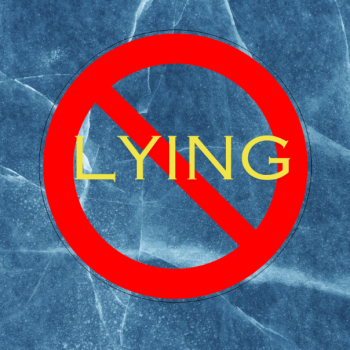If you’ve never changed your mind about something, you may be dead. Spiritually, intellectually, and even politically, if new facts and realities don’t ever prompt you to alter your way of thinking, you might as well be dead. To not learn and change, especially spiritually, is a form of death.
But change is hard. It’s also risky.
I know about the consequences of changing one’s thinking. I was fired from my position as vice-president for governmental relations at the National Association of Evangelicals. That’s right, I was asked to resign for comments made on a nationally syndicated radio show called “Fresh Air.” I provided too much “fresh air” for my bosses to handle. Officially, I was asked to resign. But the reality is that I was fired.
This event devastated me and my family. We were shocked that such a drastic action had been taken. “Please have your office cleared out within a few days”—these were my instructions. That wasn’t an easy thing to do. I had worked for the Association since 1980, and this was 2008. So, for twenty-eight years I had faithfully represented the organization, the last ten as vice president. I loved it and the people I had worked with.
Being axed in such a fashion proved hard. As if to dramatize their dissatisfaction, my “going away” severance was three months of salary. It was a clear message: please, just go away. Or as one editor wrote: “Evangelicals, one surmises, aren’t always against divorce.”
I was heartbroken. The nation’s newspapers, including The Washington Post and The New York Times, as well as small dailies such as my hometown Free Lance-Star, ran stories with these headlines: “Evangelical Leader Quits Over Gay Union Remark,” and “Truth Breaks a Fall.”
In a broad-ranging conversation about my work to educate my fellow evangelicals about the impacts of climate change, I told Terry Gross, the host of NPR’s “Fresh Air,” that I could support “civil unions” for gays and lesbians and that government funding of contraception was morally acceptable as a way to avoid abortion.
Perhaps most offensive to the board of the National Association of Evangelicals, which had given speaking platforms for Republican candidates for the presidency going back to Ronald Reagan, and whose officials I had joined for election campaigns for these Republican candidates, was that I said I had voted for candidate Barack Obama in the Virginia primary (against Hillary Clinton) for the presidency. Implied, of course, was that I had voted for Obama in the general election of 2008. And Barack Obama is a Democrat.
Read the rest here















